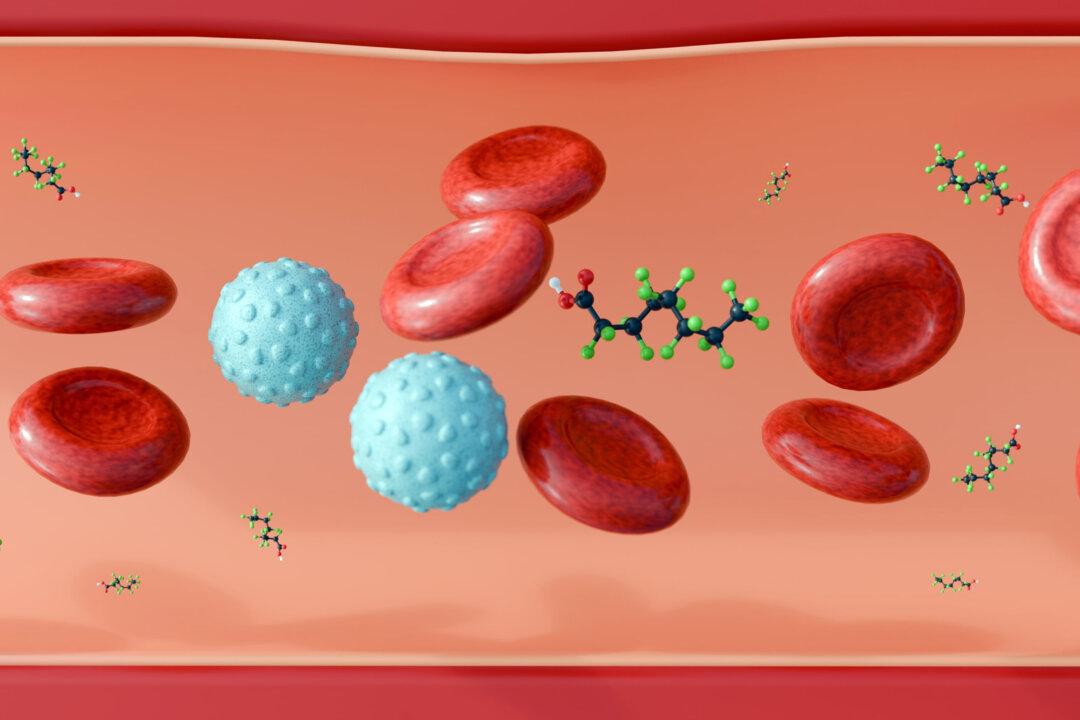A recent study has found that frequent use of high-potency cannabis can leave measurable changes to human DNA, raising concerns about the mental health impacts of increasingly available and more potent marijuana products.
Adverse Psychological Effects Already Linked to Cannabis
A large number of Americans—about 129 million people—claimed to have used marijuana at some point in their lifetime. As various states pass legalization measures, this number is projected to rise.There is also a growing body of evidence showing that this trend could have serious consequences for mental and physical health.
The findings suggest a significant increase in new psychosis cases in cities where high-potency cannabis is readily available.
New Insights on High-Potency Cannabis and DNA
Now, in a recent study published in Molecular Psychiatry, Di Forti and her team discovered that high-potency cannabis can leave a distinct mark on human DNA. This is the first study to demonstrate measurable effects of high-potency cannabis on human biology, they noted.The research focused on DNA methylation, a chemical process that alters gene expression without modifying the DNA sequence, using blood samples from 682 participants, including 188 current cannabis users and 494 people without any history of use.
According to the results, the participants categorized as frequent cannabis users reported beginning their cannabis usage at an average age of 16, primarily consuming high-potency cannabis more than once a week.
Delta-9-THC is the most abundant form in the THC class of cannabinoids and is known for its potent psychoactive properties.
The findings also suggest that the effects of cannabis on DNA differ between people experiencing their first psychotic episode and those with no such experience. This raises the prospect of developing DNA blood tests to identify cannabis users who may be at risk for psychosis.
Co-occurring Mental Health Issues and Cannabis Use
Mental health problems and substance use disorders sometimes go hand-in-hand. Substance use can trigger mental health symptoms, and mental health conditions can lead to substance use as a form of self-medication, according to the Substance Abuse and Mental Health Services Administration. They share underlying causes, including genetic factors, brain changes, and trauma. More than a quarter of adults with serious mental health conditions also struggle with substance use, particularly those with depression, anxiety disorders, schizophrenia, or personality disorders.The Epoch Times consulted Dr. Matthew Sherman, chief of adult outpatient psychiatry and behavioral health at Stony Brook Medicine, regarding the relationship between cannabis use and other mental health disorders. Based on his experience, co-occurring cannabis use with mental health disorders is prevalent and often adversely affects treatment outcomes, he said.
Ethical Considerations of DNA Testing for Psychosis Risk
There are many ethical considerations when using DNA to identify risks, Sanam Hafeez, neuropsychologist and director of Comprehend the Mind, a provider of neuropsychological assessments and evaluations in New York City, told The Epoch Times.“For one, this type of DNA imprinting, whilst possibly valuable, opens the door to ‘what else’ can change my genes,” she said.
Should DNA testing become more widespread, it could have repercussions for the mentally ill, such as “having their DNA misused or even studied without consent, legal implications, and [potential for] gene modification using substances like cannabis,” Hafeez said.
Conversely, Sherman expressed optimism about the potential of DNA testing to benefit patients.
“I think that this has the potential to be a very practical test to perform for our patients,” he said. “Ethically, I think that this could only benefit our patients by being able to identify those who are more at risk for developing psychosis with cannabis use.”
He added that he’s “quite intrigued” by the findings, “as we don’t currently have a method outside of clinical evaluation and risk factors such as family history to determine which ... patients may be at higher risk for developing psychosis.”





